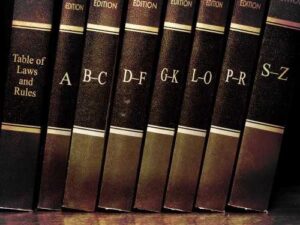In the picturesque city of Easley, South Carolina, the legal landscape surrounding minor alcohol possession can be confusing for both residents and visitors. As the legal team at The Bateman Law Firm, we believe in providing clarity and guidance to help you navigate the intricacies of the law. One of the most common questions we encounter is whether minor alcohol possession is considered a misdemeanor or a felony in Easley. Let’s delve into this topic and shed light on the legal framework, as well as the requirements you need to be aware of.
 Understanding the Classification: Misdemeanor vs. Felony
Understanding the Classification: Misdemeanor vs. Felony
In Easley, as in many jurisdictions across the United States, minor alcohol possession is typically treated as a misdemeanor offense rather than a felony. A misdemeanor is a less serious criminal offense compared to a felony, and it generally carries lighter penalties. While specific penalties can vary based on the circumstances of the case and the judge’s discretion, misdemeanor charges for minor alcohol possession often result in fines, community service, probation, or even enrollment in educational programs related to alcohol awareness.
Felony charges, on the other hand, are reserved for more serious offenses and can lead to significant consequences such as lengthy prison sentences, fines, and long-lasting impacts on a person’s criminal record. In the context of alcohol possession, felonies typically come into play when an individual is found in possession of a large quantity of alcohol or if the possession is linked to more serious criminal activity.
Requirements and Legal Considerations
While minor alcohol possession is generally treated as a misdemeanor in Easley, it’s important to note that the specific requirements and legal considerations can vary based on several factors. Some key aspects to consider include:
- Age Restrictions: The legal drinking age in South Carolina is 21. Possessing alcohol while being under the legal drinking age can result in legal consequences. Law enforcement agencies are vigilant in enforcing this age restriction to prevent underage drinking.
- Amount of Alcohol: The quantity of alcohol in possession can influence the severity of the charge. Possessing a small amount for personal use might result in a less severe penalty than possessing a larger quantity that suggests an intent to distribute or sell.
- Location: The circumstances under which alcohol possession occurs can impact the charge. Possession in a public place, especially if it involves disruptive behavior, might lead to more severe consequences.
- Repeat Offenses: If an individual has prior convictions for alcohol-related offenses, subsequent charges can lead to harsher penalties, including increased fines and potential jail time.
- Legal Representation: If you or someone you know is facing a minor alcohol possession charge, it’s crucial to seek legal representation. An experienced attorney can help you understand the charges, navigate the legal process, and work toward the best possible outcome.
The Importance of Education and Prevention
While understanding the legal aspects of minor alcohol possession is crucial, it’s equally important to address the underlying issues that can lead to such situations. Education and prevention play a vital role in reducing the incidence of underage drinking and related offenses in Easley and beyond.
- Community Awareness: Building awareness within the community about the potential consequences of minor alcohol possession can help deter individuals from engaging in such behavior. Schools, local organizations, and law enforcement agencies can collaborate to organize workshops and informational sessions aimed at educating both young people and their parents about the risks involved.
- Parental Involvement: Parents and guardians play a significant role in preventing underage drinking. Open and honest conversations about the dangers of alcohol, the legal drinking age, and the potential legal repercussions can go a long way in discouraging their children from participating in such activities.
- School Programs: Schools can implement alcohol awareness programs that focus on educating students about the risks of alcohol consumption, the legal consequences of underage drinking, and strategies for making responsible choices. These programs can empower students to resist peer pressure and make informed decisions.
- Access Restrictions: Establishing and enforcing stricter controls on the sale of alcohol to minors can help limit their access to alcoholic beverages. This includes not only retailers but also individuals who might be providing alcohol to minors.
- Counseling and Support: For those who have been charged with minor alcohol possession, counseling and support services can address the underlying issues that might have contributed to the behavior. Addressing these issues can help prevent repeat offenses.
If you or someone you know is facing a minor alcohol possession charge in Easley, South Carolina, don’t navigate the legal system alone. The Bateman Law Firm is here to provide experienced and compassionate legal representation. Our team understands the local legal landscape and is dedicated to helping you achieve the best possible outcome. Contact us today to schedule a consultation and take the first step towards protecting your rights and your future.
